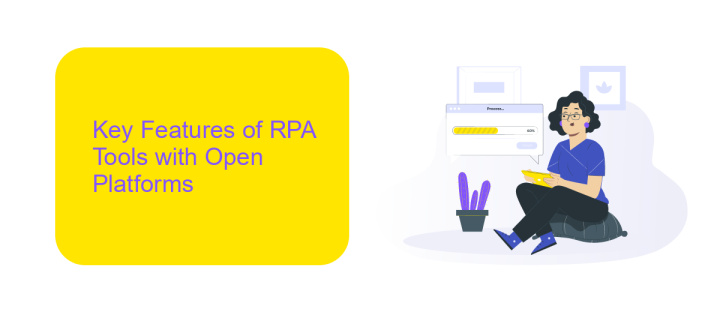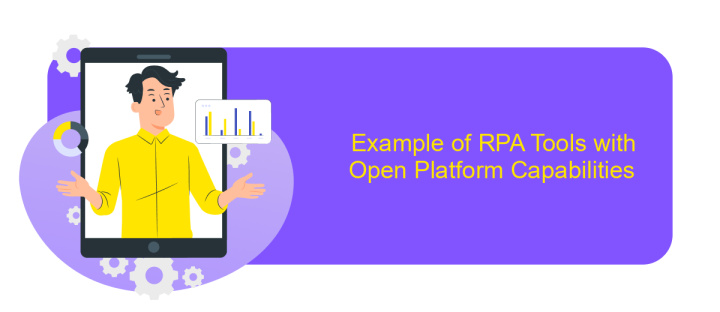Which RPA Tool Provides Open Platform for Automation
In the rapidly evolving world of automation, selecting the right Robotic Process Automation (RPA) tool is crucial for businesses aiming to streamline operations and enhance productivity. An open platform for automation offers flexibility, scalability, and integration capabilities, making it an attractive choice for organizations. This article explores which RPA tools provide open platforms, helping businesses make informed decisions for their automation needs.
Introduction
Robotic Process Automation (RPA) has revolutionized the way businesses approach repetitive tasks, offering increased efficiency and accuracy. As organizations seek to streamline operations, choosing the right RPA tool becomes crucial. An open platform for automation can provide flexibility, scalability, and integration with various systems, making it an appealing option for many enterprises. This article explores which RPA tools offer open platforms, enabling businesses to tailor automation solutions to their specific needs.
- Flexibility to adapt to changing business processes
- Scalability to accommodate growing operations
- Integration capabilities with existing systems
- Community support and resources for development
Understanding the advantages of open platforms in RPA can help businesses make informed decisions about their automation strategies. By leveraging tools that offer open platforms, companies can ensure that their automation processes are not only efficient but also adaptable to future technological advancements. This approach not only maximizes the return on investment but also empowers organizations to innovate and maintain a competitive edge in their respective industries.
Key Features of RPA Tools with Open Platforms

Robotic Process Automation (RPA) tools with open platforms offer significant flexibility and scalability, making them ideal for organizations looking to customize their automation processes. One key feature is the ability to integrate seamlessly with various systems and applications, often through APIs. This enables businesses to enhance their existing workflows without extensive reconfiguration. An excellent example is the ApiX-Drive service, which simplifies the integration process by allowing users to connect multiple apps without needing advanced technical skills.
Another crucial feature of open platform RPA tools is their support for collaborative development. These platforms often provide shared libraries and community-driven resources, which facilitate faster development cycles and innovation. Additionally, they offer robust security measures to ensure data integrity and compliance with industry standards. By leveraging these tools, businesses can not only streamline operations but also foster a more agile and responsive digital environment, ultimately leading to increased efficiency and reduced operational costs.
Benefits of Open Platforms in RPA Tools

Open platforms in Robotic Process Automation (RPA) tools offer significant advantages for businesses looking to enhance their automation capabilities. These platforms provide flexibility, allowing organizations to customize and integrate various applications seamlessly. By leveraging open platforms, companies can adapt quickly to changing business needs and technological advancements, ensuring their automation strategies remain relevant and effective.
- Interoperability: Open platforms facilitate integration with a wide range of third-party applications and systems, enhancing overall efficiency.
- Scalability: Businesses can easily scale their automation efforts without being restricted by proprietary limitations, allowing for growth and adaptation.
- Cost-effectiveness: By avoiding vendor lock-in, organizations can choose the best tools and solutions for their specific needs, optimizing budget allocation.
- Community Support: Open platforms often have vibrant communities that contribute to innovation and provide valuable support and resources.
In conclusion, adopting open platforms in RPA tools empowers businesses to build robust, adaptable automation solutions. This approach not only enhances operational efficiency but also fosters a culture of continuous improvement and innovation, positioning companies for long-term success in a dynamic market landscape.
Example of RPA Tools with Open Platform Capabilities

Robotic Process Automation (RPA) tools with open platform capabilities are increasingly sought after for their flexibility and integration potential. These tools allow businesses to customize and scale their automation processes, ensuring seamless integration with existing systems. Open platform RPA tools are designed to support a wide range of applications, making them adaptable to various industries and business needs.
One of the key advantages of open platform RPA tools is their ability to connect with different technologies and software, offering a more comprehensive automation solution. This flexibility enables businesses to optimize their processes and improve efficiency without being restricted by proprietary limitations. Additionally, open platform tools often foster a community-driven environment, encouraging collaboration and innovation.
- UiPath: Known for its extensive integration capabilities and community support.
- Automation Anywhere: Offers a robust open platform with a strong developer community.
- Blue Prism: Provides a scalable solution with open architecture for enterprise-level automation.
These RPA tools exemplify the benefits of open platform capabilities, providing businesses with the tools necessary to enhance their automation strategies. By leveraging these platforms, organizations can achieve greater agility, reduce costs, and drive digital transformation across their operations.
- Automate the work of an online store or landing
- Empower through integration
- Don't spend money on programmers and integrators
- Save time by automating routine tasks
Conclusion
In conclusion, choosing the right RPA tool that offers an open platform for automation is crucial for businesses aiming to streamline their processes efficiently. An open platform not only provides flexibility but also ensures scalability and integration with various systems. Among the numerous options available, it's essential to evaluate each tool based on its ability to integrate with existing systems, ease of use, and support for future technological advancements.
For companies looking to enhance their automation capabilities, leveraging services like ApiX-Drive can significantly simplify the integration process. ApiX-Drive offers a seamless way to connect various applications and automate workflows without the need for extensive technical expertise. This can be particularly beneficial for organizations aiming to maximize their automation potential while minimizing the complexity of integration. Ultimately, selecting an RPA tool that supports an open platform, complemented by services like ApiX-Drive, can lead to more efficient operations and a competitive edge in the market.
FAQ
What is an open platform for automation in RPA?
Which RPA tool provides an open platform for automation?
What are the benefits of using an open platform for RPA?
How can I integrate RPA with other software systems?
What should I consider when choosing an open platform RPA tool?
Apix-Drive will help optimize business processes, save you from a lot of routine tasks and unnecessary costs for automation, attracting additional specialists. Try setting up a free test connection with ApiX-Drive and see for yourself. Now you have to think about where to invest the freed time and money!


